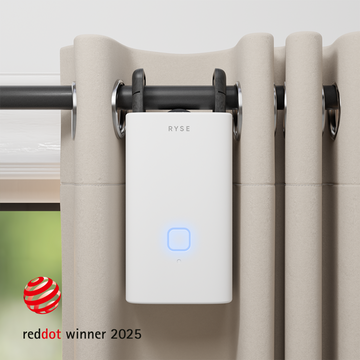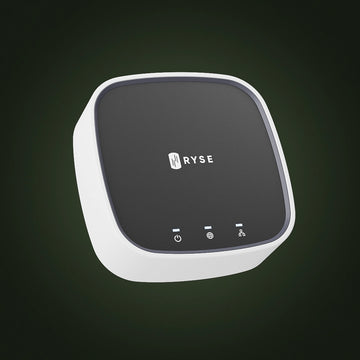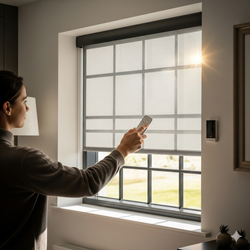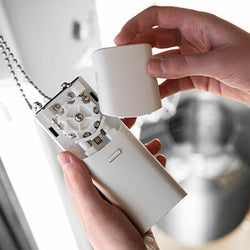What You’ll Learn
- What happens in your brain and body when you don’t sleep enough
- How sleep loss affects emotional regulation, mental clarity, and hormonal balance
- The role of sleep in mood disorders, appetite control, and decision-making
- Signs that your daily functioning is being affected by poor sleep
Why Just One Bad Night Can Throw You Off
We often think of sleep as rest, something passive. But it’s one of the most active and essential processes your body goes through. When you don’t get enough of it, the effects show up everywhere: your thoughts, your energy, your mood.
Even a single night of poor sleep can shift your hormones, increase stress, and affect how you interpret the world around you.
Mood Swings, Irritability & Emotional Reactivity
When you don’t get enough sleep, your brain’s balance between reason and emotion starts to shift. The prefrontal cortex — the part responsible for logical thinking and self-control — slows down, while the amygdala, which governs emotional reactions, becomes more reactive. As a result, it becomes much harder to regulate your emotions. Stress feels more intense, conflicts feel more personal, and even small frustrations can feel overwhelming.
This shift often shows up as irritability, low tolerance for delays or mistakes, and reduced patience with others. You might find yourself snapping at people you care about, struggling to express empathy, or feeling emotionally fragile throughout the day. Anxiety tends to rise, and your ability to self-regulate dips — not because you’re overreacting, but because your brain simply isn’t equipped to handle stress the way it usually does. The emotional filter wears thin with every restless night, even if you manage to fall asleep and wake up at your usual time.
Hormonal Imbalance & Increased Cravings
Sleep isn’t just about rest — it plays a major role in regulating the hormones that control hunger, metabolism, and stress. When you're sleep-deprived, this delicate balance gets disrupted. Your body starts producing more ghrelin, the hormone that triggers hunger, and less leptin, the hormone that signals fullness. At the same time, cortisol levels rise — which not only adds to stress but also encourages your body to hold onto fat.
This hormonal shift leads to more intense food cravings, especially for high-carb, sugary, or processed foods. Your body is essentially asking for quick energy to make up for the exhaustion. But instead of burning that energy efficiently, it becomes more likely to store it. Over time, this cycle can increase the risk of weight gain, insulin resistance, and long-term metabolic issues — all from a lack of quality sleep.
Brain Fog, Memory Lapses & Slow Thinking
Sleep is essential for brain maintenance. During deep sleep, your brain clears out metabolic waste, processes information, and forms new memories. Without enough of it, these systems don’t work as they should. You might notice it as trouble concentrating, forgetting things moments after hearing them, struggling to make decisions, or just feeling mentally “off” all day.
Over time, chronic sleep deprivation doesn’t just affect your day-to-day clarity — it’s also been linked to long-term cognitive decline and increased risk of neurodegenerative conditions like Alzheimer’s. In short, your brain needs consistent rest to function at its best now and protect itself for the future.
Poor Impulse Control
The tired brain is a reckless brain. When you’re short on sleep, the areas responsible for executive function — like impulse control, long-term planning, and sound judgment — become less active. At the same time, your reward centers stay fired up, pushing you toward instant gratification.
This imbalance makes it harder to resist temptations, think ahead, or make responsible choices. That’s why sleep deprivation is often linked to impulsive behavior, poor decision-making, and even increased risk of accidents or substance use. A well-rested brain is simply more capable of making thoughtful, measured decisions.
Reduced Stress Tolerance & Burnout Risk
A well-rested body has the tools to cope with daily stress. But without enough sleep, your nervous system stays in a heightened state of alert. Everything starts to feel more intense — even small challenges can trigger outsized reactions.
You may feel more anxious, easily overwhelmed, or emotionally fragile. It’s harder to bounce back from setbacks, and your overall resilience drops. When this pattern continues, the constant pressure on your system can contribute to chronic stress, burnout, and increase the risk of anxiety or depression.
How Your Sleep Changes When You Cut Back on Alcohol
Even small reductions in alcohol can lead to noticeable improvements in your sleep. Here’s what typically happens when you start drinking less and give your body time to reset:
After one night:
Subtle change, but you may fall into deeper sleep stages more easily and wake up feeling less groggy. REM sleep rebounds quickly, so you might notice more vivid dreams and better memory consolidation.
After one week:
Your sleep becomes more consistent. You’re less likely to wake up during the night, and your body starts to regulate melatonin and core temperature more effectively. Mood and focus improve, and your energy levels start to stabilize.
After one month:
Your circadian rhythm resets. You fall asleep faster, wake up more naturally, and get more restorative deep sleep. With fewer disruptions, your body has more time to repair and recharge, supporting everything from immune health to emotional balance. Cravings and mood swings also ease, as hormones begin to rebalance.
Controlling Light Pollution for Better Sleep
While cutting back on alcohol significantly improves your sleep, there's another critical factor that can make a huge difference: controlling light pollution. Light, especially blue light, interferes with your body’s natural circadian rhythm, making it harder to fall asleep, stay asleep, and reach deep, restorative sleep stages.
Artificial light — from streetlights, devices, or even the glow from your TV — can trick your brain into thinking it's still daytime, inhibiting melatonin production. The result? You struggle to wind down and wake up feeling less refreshed.
How can you fix this?
Start by reducing exposure to bright lights in the evening and making your bedroom as dark as possible. This is where RYSE Smart Shade can make a big impact. These innovative, easy-to-install smart home retrofits attach to the beaded chain of your shade, automatically adjust to block out external light sources, and create the ideal sleeping environment. They promote better sleep by darkening your space and come with effortless control via your smartphone or voice assistant — no hassle, just better rest.
FAQ
How many hours of sleep do I really need?
Most adults need between 7–9 hours of sleep each night to function optimally. Some individuals may feel refreshed with as little as 6.5 hours, but consistently getting less than 6 hours can lead to noticeable effects on your mental and physical health. Inadequate sleep can impact memory, concentration, mood, and even physical health by weakening the immune system and increasing the risk of chronic conditions.
Can I “catch up” on sleep over the weekend?
You can recover some sleep over the weekend, but not fully. Recovery sleep can help alleviate some of the short-term effects of sleep deprivation, like feeling tired or sluggish, but it doesn’t entirely reverse the long-term consequences of chronic sleep loss. Regularly getting insufficient sleep can build up a "sleep debt," and while naps or longer sleep on weekends may help you feel better temporarily, it's important to aim for consistent, adequate sleep throughout the week to avoid these cumulative effects.
Why am I more emotional when I’m tired?
When you’re sleep-deprived, your emotional centers (like the amygdala) become more sensitive, while your brain’s rational, logical centers (like the prefrontal cortex) become less active. This means it’s harder for your brain to regulate emotions and respond to situations calmly. As a result, even small irritations can trigger a stronger emotional reaction, leading to irritability, mood swings, and difficulty managing stress.
How can RYSE help me normalize my sleep?
RYSE Smart Shade can play a crucial role in improving your sleep quality by controlling light pollution in your bedroom. Exposure to artificial light, especially in the evening, can disrupt your circadian rhythm and make it harder to fall asleep. With RYSE, you can automate your blinds to darken your room at the optimal time, creating the perfect environment for restful sleep. RYSE’s easy installation and simple, intuitive control via your smartphone or voice assistant make it effortless to enhance your sleep environment, allowing for deeper, more restorative rest.








